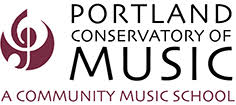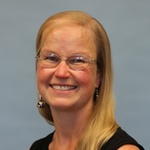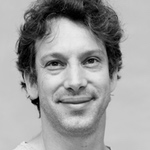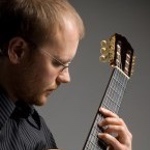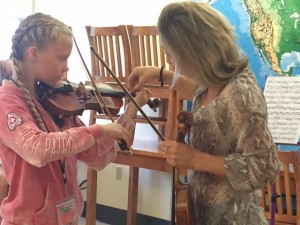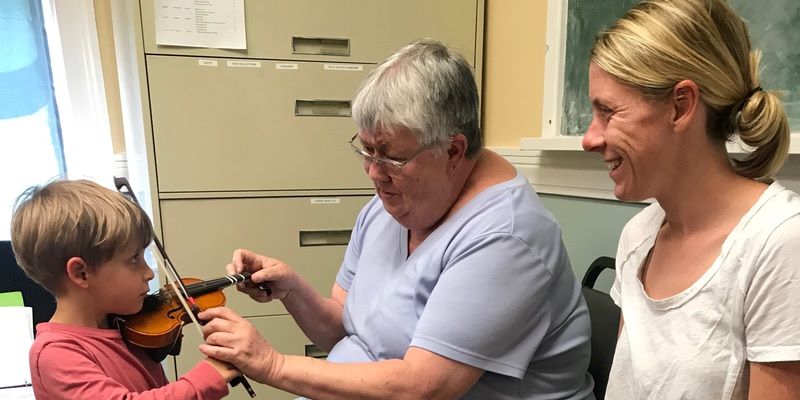
The Suzuki Program at PCM is for children ages four and up with parent participation.
Our Suzuki students have access to several learning opportunities. We offer private Suzuki lessons in violin, viola, and cello, as well as violin group classes.
While we are offering both in-person and online Suzuki lessons, we are not currently offering our Suzuki group violin class.
About the Suzuki Method
About the Suzuki Method
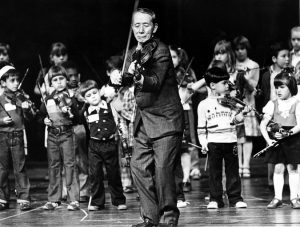
Every Child Can Learn
When Japanese violinist Shinichi Suzuki moved to Germany in the 1920’s, he quickly discovered the challenges of learning a new language. As a college-educated man, he noticed that toddlers could speak their native language complete with dialect and inflection of their specific geographic location. As he contemplated this phenomenon, he wondered if the same principles of language learning could be applied to the study of music. From this question, the Suzuki method was born.
Suzuki called his new teaching method “the mother-tongue approach” because it applied the process by which children learn their native language to musical learning. Many of the keystones of the Suzuki Method are as follows:
Parent Involvement
Suzuki parents are very involved in their child’s musical development. They attend lessons with the child and directly participate in the learning process. The parent becomes the “home teacher” during the week, assisting in all aspects of practicing and supporting the student, creating a positive learning environment with help from the Suzuki teacher.
Positivity and Environment
Parents and the teacher work together to create a positive environment both at home as well as in the studio. Just as parents respond positively when a child says a new word for the first time, they should also respond to a child’s musical growth with affirmation. A special place for practicing and listening in the home supports and encourages the child.
Early Start – Listening
Although it is never too late to start, Suzuki students traditionally start at the age of three or four! This allows them to learn music at a time when they are developing communication skills. Children develop musical skills in the same natural way they develop language, by listening and repetition. As babies learn to speak, they do not read at this time. Later, once skill is developed on the instrument, then music reading is introduced. A CD with specific repertoire is listened to daily and many Suzuki families start listening before they begin lessons.
Repetition and Review
Constant repetition is essential in learning to speak as well as to play an instrument. Children do not learn a word or piece of music and then discard it. Once a Suzuki student learns a piece, they retain it by adding it to their review list, building upon their experience by using it in more sophisticated ways.
Interactive and Group Learning
Suzuki students learn the importance of interaction with teachers and parents. However, another layer of the Suzuki method is also the interaction with other Suzuki students. Group classes and ensembles allow students to gain skills and musical depth by drawing upon shared learning experiences with others. Motivation is a plus! Suzuki students across the world play together regularly!
More Information
You can learn more about the Suzuki Method at the Suzuki Association of the Americas and the International Suzuki Association.
PCM Suzuki Faculty
Violin
Deirdre Oehrtmann
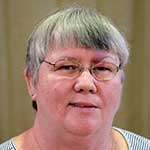
Violin
Margaret Hopkins
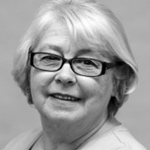
Violin & Viola
Kimberly Lehmann
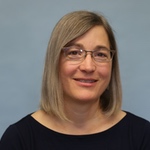
Violin
Sylvia Schwartz
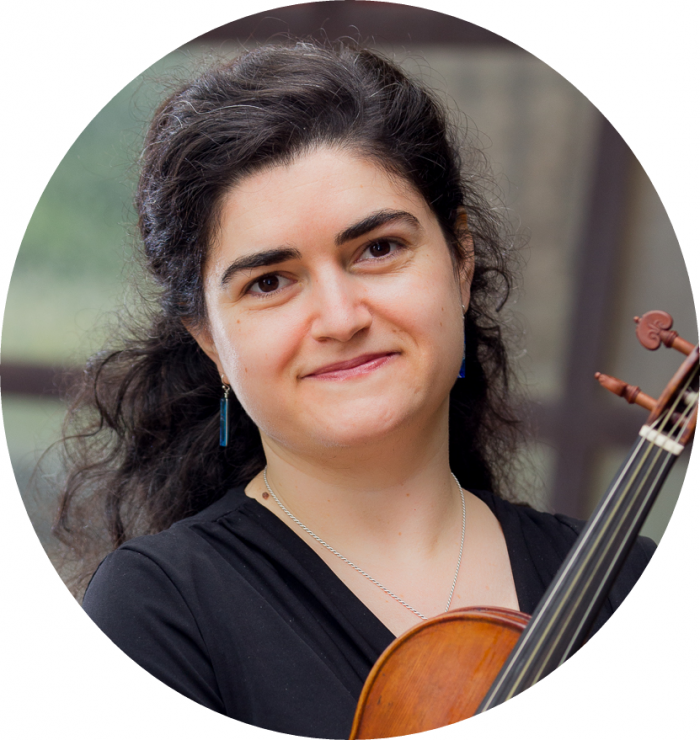
New England Suzuki Institute
New England Suzuki Institute
PCM students are also very fortunate to have the New England Suzuki Institute (NESI) camp at St. Joseph’s College in Standish, Maine. This nationally-recognized institute occurs the last week of June, involving students not only from Maine but from various parts of the country.





